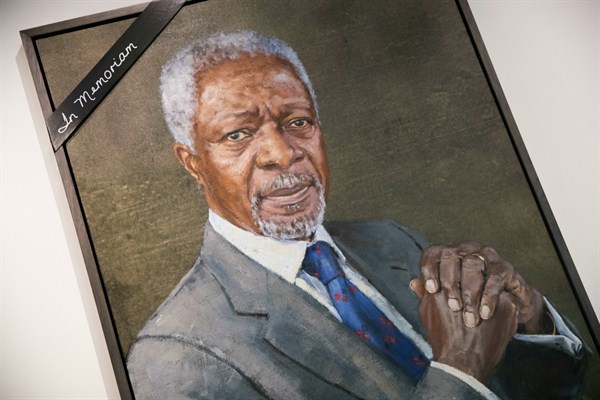Kofi Annan’s career was inextricably entangled with power politics. The former United Nations secretary-general, who died on Saturday, spent decades grappling with tensions between the organization’s members over crises from the Balkans to Syria. At times, he managed the turbulence masterfully. At others, he had little or no control over events. Win or lose, Annan occupied a very rare place in the international political firmament as a mediator able to parlay with the biggest powers.
There have already been many tributes to Annan, emphasizing his commitment to a better world and his personal charisma. He will almost certainly rank as one of the best secretaries-general the U.N. has had. But he was always a politician rather than a saint, and acutely aware of geopolitical realities.
But if Annan was politically canny, he could also be a risk-taker. He worked with the permanent members of the Security Council, above all the United States, when he could. But he was occasionally willing to pick a fight with the big powers when he had to, or to bet his credibility on long-shot political gambits to head off crises that the powers could not resolve themselves. This mix of calculation and gambling offers lessons for U.N. officials aiming to deal with today’s international tensions.

